Audi Q2 vs Vauxhall Mokka - Differences and prices compared
Compare performance (300 HP vs 281 HP), boot space and price (24900 £ vs 23000 £ ) at a glance. Find out which car is the better choice for you – Audi Q2 or Vauxhall Mokka?
Costs and Efficiency:
Price and efficiency are key factors when choosing a car – and this is often where the real differences emerge.
Vauxhall Mokka has a barely noticeable advantage in terms of price – it starts at 23000 £ , while the Audi Q2 costs 24900 £ . That’s a price difference of around 1809 £.
Fuel consumption also shows a difference: Audi Q2 manages with 4.80 L and is therefore hardly perceptible more efficient than the Vauxhall Mokka with 4.90 L. The difference is about 0.10 L per 100 km.
Engine and Performance:
Under the bonnet, it becomes clear which model is tuned for sportiness and which one takes the lead when you hit the accelerator.
When it comes to engine power, the Audi Q2 has a minimal edge – offering 300 HP compared to 281 HP. That’s roughly 19 HP more horsepower.
In acceleration from 0 to 100 km/h, the Audi Q2 is clearly perceptible quicker – completing the sprint in 4.90 s, while the Vauxhall Mokka takes 5.90 s. That’s about 1 s faster.
There’s also a difference in torque: Audi Q2 pulls a bit stronger with 400 Nm compared to 345 Nm. That’s about 55 Nm difference.
Space and Everyday Use:
Cabin size, boot volume and payload all play a role in everyday practicality. Here, comfort and flexibility make the difference.
Both vehicles offer seating for 5 people.
In curb weight, Vauxhall Mokka is hardly perceptible lighter – 1294 kg compared to 1330 kg. The difference is around 36 kg.
In terms of boot space, the Audi Q2 offers to a small extent more room – 405 L compared to 350 L. That’s a difference of about 55 L.
When it comes to payload, Audi Q2 distinct takes the win – 510 kg compared to 400 kg. That’s a difference of about 110 kg.
Who wins the race in the data check?
The Audi Q2 holds a narrow overall lead in the objective data comparison.
This result only shows which model scores more points on paper – not which of the two cars feels right for you.
Costs and Consumption
View detailed analysis
Engine and Performance
View detailed analysis
Dimensions and Body
View detailed analysis
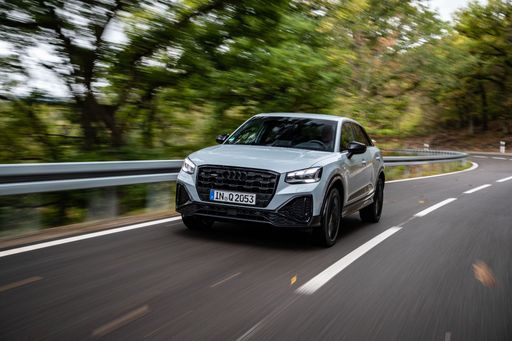
Audi Q2
Audi Q2
The Audi Q2 packs Audi’s premium attitude into a compact, cheeky package that turns city streets into a runway for tasteful design and clever practicality. It’s an easy car to live with thanks to an upscale cabin, composed manners and sprightly handling, and while it won’t satisfy someone chasing sports-car thrills, it’s a smart, stylish pick for buyers who want substance with a wink.
details
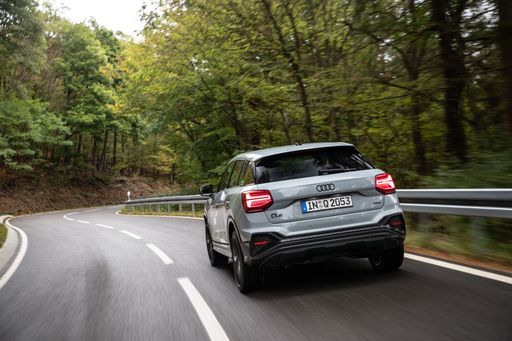
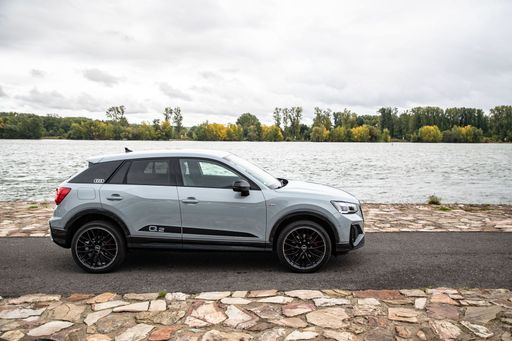
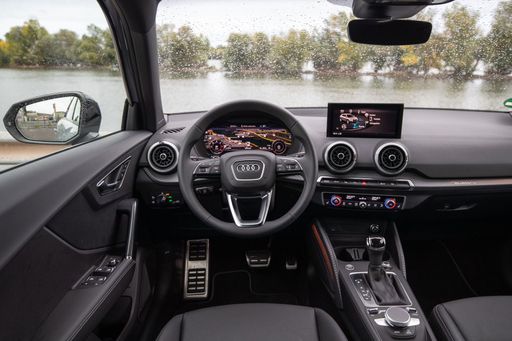
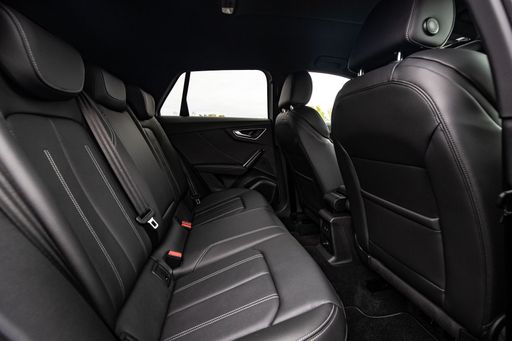
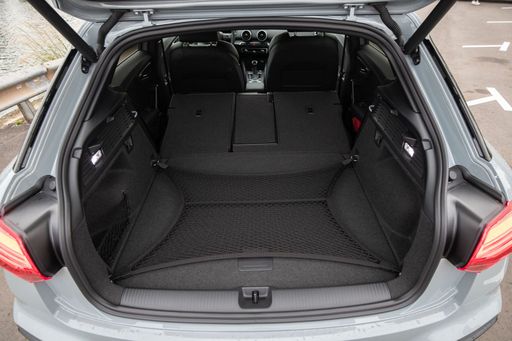
Vauxhall Mokka
The Opel Mokka cuts a smart, modern silhouette that feels right at home in the city while still turning heads on the open road. It's a practical, easy-to-live-with crossover that blends comfy driving manners with enough flair and tech to keep daily commutes interesting — and it won’t make you regret trading up.
details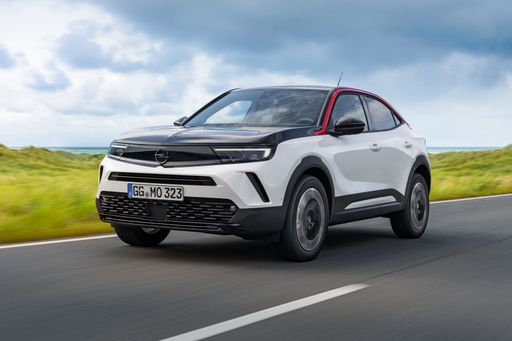
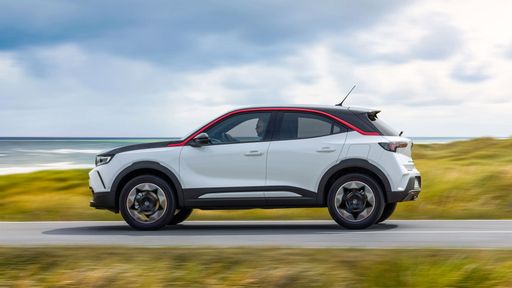
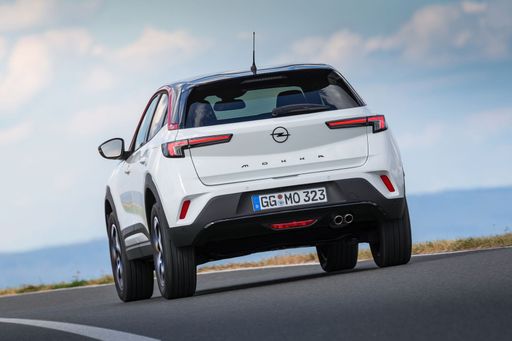
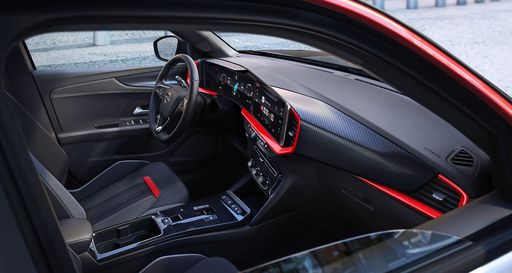
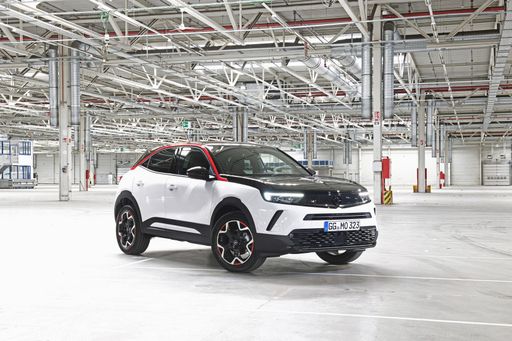
Costs and Consumption |
|
|---|---|
|
Price
24900 - 43600 £
|
Price
23000 - 40500 £
|
|
Consumption L/100km
4.8 - 8.1 L
|
Consumption L/100km
4.9 - 5.7 L
|
|
Consumption kWh/100km
-
|
Consumption kWh/100km
15.4 - 18.5 kWh
|
|
Electric Range
-
|
Electric Range
336 - 403 km
|
|
Battery Capacity
-
|
Battery Capacity
51 kWh
|
|
co2
127 - 183 g/km
|
co2
0 - 129 g/km
|
|
Fuel tank capacity
-
|
Fuel tank capacity
44 L
|
Dimensions and Body |
|
|---|---|
|
Body Type
SUV
|
Body Type
SUV
|
|
Seats
5
|
Seats
5
|
|
Doors
-
|
Doors
5
|
|
Curb weight
1330 - 1610 kg
|
Curb weight
1294 - 1672 kg
|
|
Trunk capacity
355 - 405 L
|
Trunk capacity
310 - 350 L
|
|
Length
-
|
Length
4150 mm
|
|
Width
1794 - 1802 mm
|
Width
1787 mm
|
|
Height
-
|
Height
1506 - 1535 mm
|
|
Max trunk capacity
-
|
Max trunk capacity
1060 - 1105 L
|
|
Payload
450 - 510 kg
|
Payload
388 - 400 kg
|
Engine and Performance |
|
|---|---|
|
Engine Type
Petrol, Diesel
|
Engine Type
Electric, Petrol MHEV, Petrol
|
|
Transmission
Manuel, Automatic
|
Transmission
Automatic, Manuel
|
|
Transmission Detail
Manual Gearbox, Dual-Clutch Automatic
|
Transmission Detail
Reduction Gearbox, Dual-Clutch Automatic, Manual Gearbox
|
|
Drive Type
Front-Wheel Drive, All-Wheel Drive
|
Drive Type
Front-Wheel Drive
|
|
Power HP
116 - 300 HP
|
Power HP
136 - 281 HP
|
|
Acceleration 0-100km/h
4.9 - 10.5 s
|
Acceleration 0-100km/h
5.9 - 9 s
|
|
Max Speed
-
|
Max Speed
150 - 209 km/h
|
|
Torque
200 - 400 Nm
|
Torque
230 - 345 Nm
|
|
Number of Cylinders
3 - 4
|
Number of Cylinders
3
|
|
Power kW
85 - 221 kW
|
Power kW
100 - 207 kW
|
|
Engine capacity
999 - 1984 cm3
|
Engine capacity
1199 cm3
|
General |
|
|---|---|
|
Model Year
2025
|
Model Year
2024 - 2025
|
|
CO2 Efficiency Class
D, F, E, G
|
CO2 Efficiency Class
A, C, D
|
|
Brand
Audi
|
Brand
Vauxhall
|
What drivetrain options does the Audi Q2 have?
The Audi Q2 is offered with Front-Wheel Drive or All-Wheel Drive.




